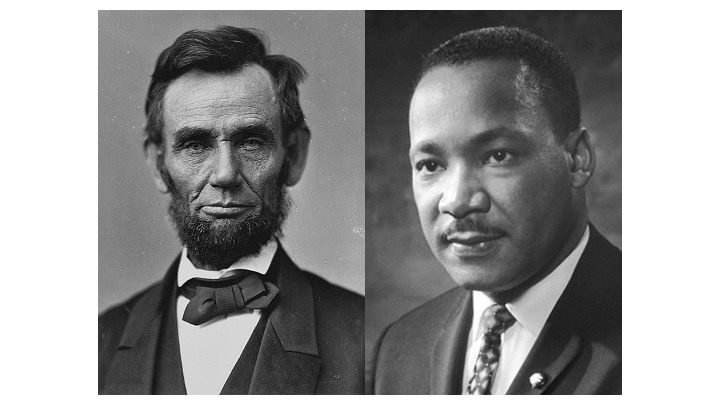The culture war is a metaphorical war (for now), but the metaphor is valid

Longtime LGM commenter JEC:
We liberals really need to acknowledge that (a) we are in a culture war and (b) we are the aggressors. Racism, sexism, and homophobia have been features of the dominant culture since…well, pretty much forever. We are engaged in a conscious effort to marginalize — and, if possible, extirpate — these tendencies, and we are using whatever means we have at our disposal to do so, including the sword of the state. We want to defeat racism, sexism, and homophobia, and we are very intentionally using the cultural reach of the public schools to do it.
We do want to “take America away from” those who hold, espouse, and propagate those values. We do want their kids to look at them funny when they make homophobic remarks.
Look, some of us believe that queer-itude is just part of the ordinary variation in the human species, like handed-ness or aptitude for badminton. Others of us believe that queer-itude is the deepest form of human depravity, an abomination and an insult to the holy Almighty. There’s no “neutral” position between the two. There are just sides, and everybody is on one or the other.
Imagine, if you will, the book Pride Puppy, but instead of being set at a Pride parade, it’s set at a Nazi parade. The book depicts a variety of happy Nazis, joyfully celebrating the rich cultural fabric that is National Socialism, including perhaps an elliptical nod to one of the great Nazi activists who is no longer with us (sure to be lost on children, but there as a token of respect, for grownup consumption).
Personally, I’d be appalled and enraged, and I wouldn’t for an instant buy the argument that this depiction isn’t affirmatively pro-Nazi, merely acquainting children with the bare fact of the existence of Nazis in the world. Horseshit. It’s normalizing fucking Nazis.
We are engaged in a project to “normalize” queer-itude-ness. We are trying to change America and change the world. “Sometimes, to make a better world, means having to tear the old one down.” (Yeah, I know, Hydra. But he’s got a point.) It’s just a little bit precious to whine, “lil’ ol’ us weren’t doin’ nuthin'” when the bad guys push back.
I don’t understand the Hydra reference and didn’t google it, but otherwise I pretty much agree with this.
Ten years or so ago, at a festschrift for a colleague, an old-style Milton Friedmanesque libertarian law professor gave a talk which was basically “the right wing in this country needs to understand that we lost the culture war, and focus on upward wealth redistribution without further distractions of that sort.” (Naturally the worship words he used for upward wealth distribution were things like “freedom” and “efficiency” and “the Market” so I’m using the Universal Libertarian Decoder to translate).
I remembered that talk yesterday, in the wake of Make Roger Taney Great Again day at the SCOTUS, especially after I read JEC’s bracing analysis.
And here I want to mention what seems to me a very deep cultural and psychological problem on the liberal-left, which is a pervasive tendency toward various types of Whig history, in which history itself is more or less assumed to move in an inevitable direction, with a sort of vaguely Marxisant or quasi-Christian eschatological faith that in the end the good guys have to win because that’s the ultimate plot line.
A couple of quotes from two of the very greatest Americans to ever live echo this idea. Lincoln famously said that a house divided cannot stand against itself. This is unfortunately overstated as a description of American history proper. We are at this very moment a house divided against itself, and we’re still standing, and seem likely to stay in something of this condition for a very long time.
Martin Luther King Jr. said that the moral arc of the universe is long, but it bends toward justice, which is a straightforward statement of eschatological faith, which makes sense given that King was that rarest of things, an actual American Christian. If you don’t share that faith, this statement seems more like a wistful hope than a description of the current state of affairs, especially after days like yesterday, and years like the last decade.
Likewise and during every day of an unillustrious life, time carries us. But a moment always comes
when we have to carry it. We live on the future: “tomorrow,” “later on,” “when you have made your way,”
“you will understand when you are old enough.” Such irrelevancies are wonderful, for, after all, it’ s a
matter of dying. Yet a day comes when a man notices or says that he is thirty. Thus he asserts his youth.
But simultaneously he situates himself in relation to time. He takes his place in it. He admits that he
stands at a certain point on a curve that he acknowledges having to travel to its end. He belongs to time,
and by the horror that seizes him, he recognizes his worst enemy. Tomorrow, he was longing for
tomorrow, whereas everything in him ought to reject it. That revolt of the flesh is the absurd.
Camus, “The Myth of Sisyphus”


